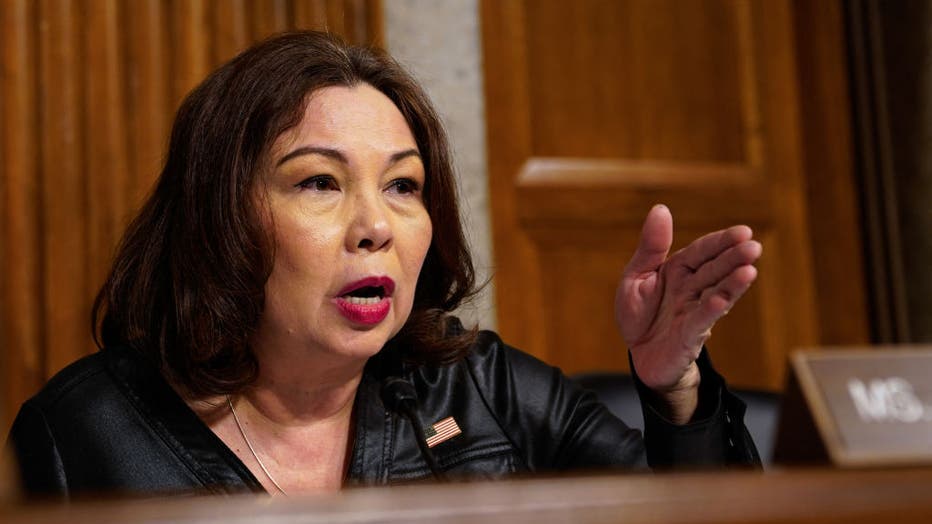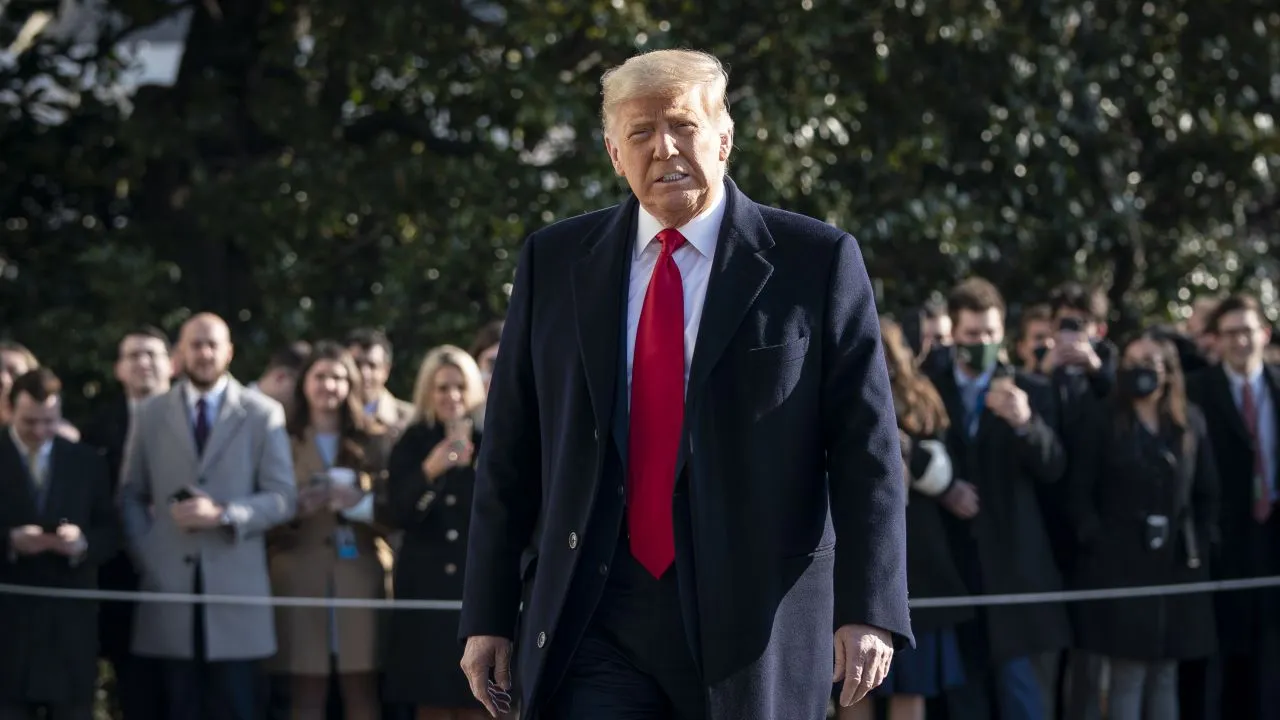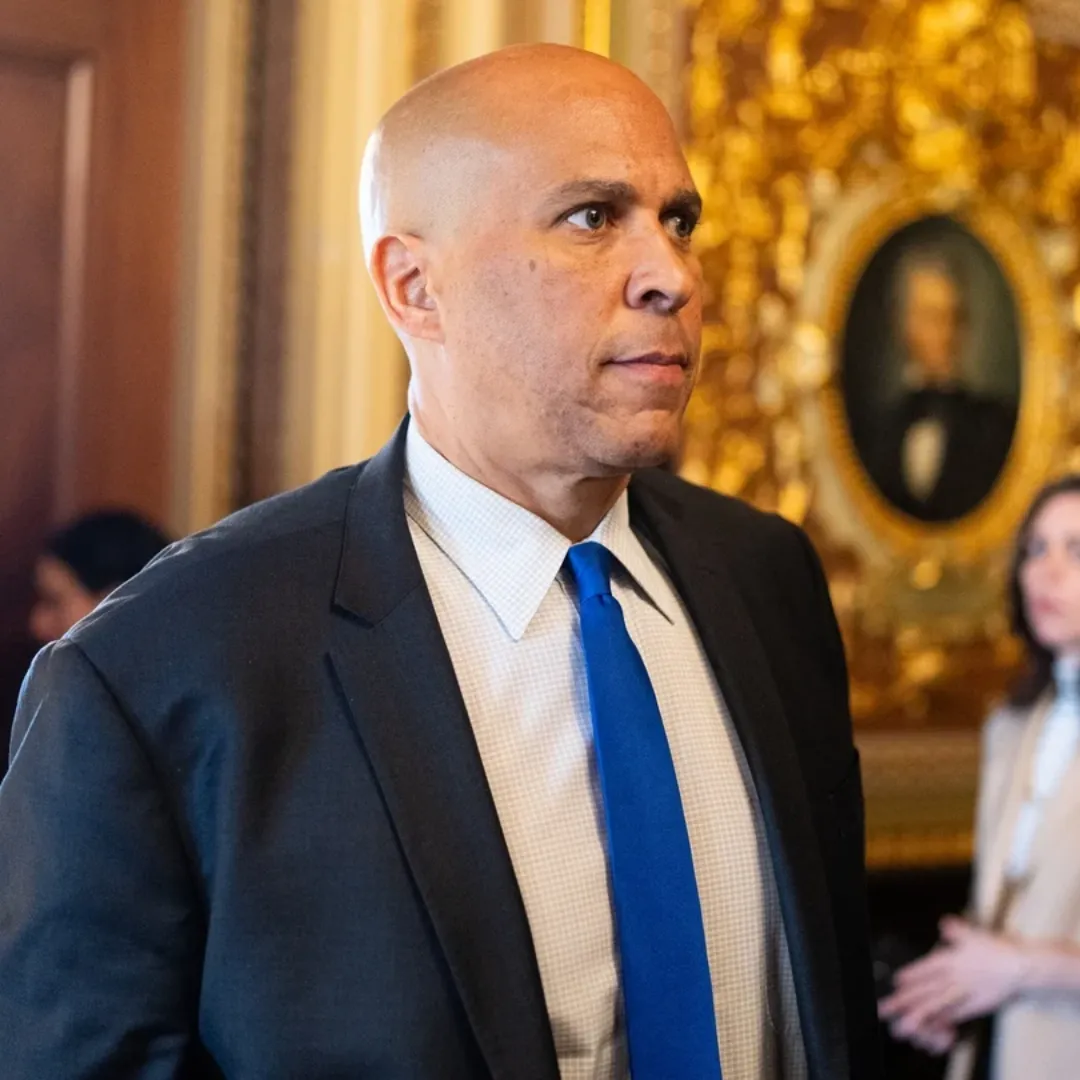
In a pointed and forceful rebuke, Senator Tammy Duckworth (D-IL) did not hold back when discussing the role of Secretary of Defense Pete Hegseth in the recent scandal surrounding the inclusion of a journalist in a high-level government discussion about military operations in Yemen.
The controversy stems from the revelation that Jeffrey Goldberg, the editor-in-chief of The Atlantic, was accidentally added to a Signal group chat where officials, including Hegseth, discussed the plans for airstrikes against Houthi rebels in Yemen. The incident has ignited fierce debate on Capitol Hill and beyond, with both sides of the political spectrum weighing in on the implications for national security.
The inclusion of Goldberg in the chat has raised significant questions about the security protocols surrounding sensitive communications within the Trump administration.
While the White House and officials like Hegseth have tried to downplay the significance of the leak, claiming no classified information was shared, others, including Duckworth, argue that the incident is symptomatic of a much deeper problem within the administration: the lack of competence and accountability at the highest levels of government.
During an appearance on MSNBC’s Katy Tur Reports, Sen. Duckworth did not mince words in her criticism of Hegseth, calling him “literally the most unqualified Secretary of Defense in history.” Her comments reflect growing frustration among Democrats and national security experts who believe that the current administration's handling of military affairs is deeply flawed and dangerously unprofessional.
Duckworth’s blistering assessment of Hegseth comes at a time when the administration’s security lapses are under intense scrutiny, especially given the ongoing investigation into how Goldberg was added to the chat without proper oversight.
The episode has left many wondering how such a significant security breach could occur, and whether the administration is taking the necessary steps to prevent future incidents. In addition to calling for accountability, Duckworth suggested that a thorough investigation should be launched to determine how this lapse happened and to what extent national security may have been compromised.
While the Trump administration has dismissed the incident as an innocent mistake, the senator’s comments underscore the serious concerns that many have regarding the administration's ability to safeguard sensitive information.

The inclusion of Jeffrey Goldberg, a well-known journalist with The Atlantic, in the group chat discussing military operations is an issue that continues to reverberate across political and security circles. According to reports, Goldberg was added to the chat by National Security Adviser Mike Waltz, who later acknowledged that the mistake was unintentional.
However, the presence of a journalist in a communication channel reserved for high-level government officials discussing military strategies has led to questions about how such an error could happen and why it was not caught sooner.
In response to inquiries about the incident, Hegseth and other Trump administration officials have maintained that no classified material was exchanged in the chat. Despite this assurance, the inclusion of a journalist raises serious concerns about the administration's handling of sensitive military information.
In a time of heightened geopolitical tensions, particularly in the Middle East, the integrity of communications related to military operations is paramount. The leak of any details, even if not classified, could have far-reaching consequences, from jeopardizing ongoing operations to damaging relationships with allies and adversaries alike.
Senator Duckworth, who has long been an advocate for national security and military accountability, expressed her disbelief that such a lapse could occur under Hegseth’s watch.
“This is a man who was given one of the most important national security positions in the country, and yet he has proven time and again that he is incapable of performing the duties required of him,” Duckworth said, adding that Hegseth’s handling of the situation was emblematic of the Trump administration's broader failures in managing national security.
Her statement echoed concerns voiced by many within the military and intelligence communities, who have criticized the administration for undermining the professionalism and expertise that are critical to effective national defense.

The controversy surrounding Hegseth’s handling of the Signal chat leak has brought renewed scrutiny to his qualifications and leadership capabilities. Before being appointed Secretary of Defense, Pete Hegseth was a Fox News personality with no military experience or formal training in defense policy.
His appointment to one of the most critical positions in the U.S. government raised eyebrows at the time, with many questioning whether he had the necessary experience and knowledge to oversee the military and national defense operations.
Senator Duckworth’s sharp criticism of Hegseth is not the first time his qualifications have been called into question. Since his appointment, he has faced criticism from both Democrats and Republicans for his lack of experience and his controversial views on defense issues.
Many have pointed to his history of promoting unsubstantiated claims and his willingness to align himself with Trump’s more radical and unverified policies. His approach to national security, which some see as more focused on political loyalty than on sound defense strategy, has made him a polarizing figure within the military and national security circles.
In her comments, Duckworth raised the issue of accountability, noting that a lack of competence at the top can have disastrous consequences for the nation’s security. “When you have someone in charge of national defense who is not qualified to hold that position, it sends a message to our allies and adversaries alike that the United States is not taking national security seriously,” Duckworth stated. “And that is a dangerous message to send, especially in these times.”
In addition to questioning Hegseth’s qualifications, Sen. Duckworth also called for an investigation into the circumstances surrounding the Signal chat leak. The senator argued that the American people deserve to know how such a significant security breach could have occurred and whether any sensitive information was compromised as a result.
While Trump and his allies have downplayed the severity of the incident, Duckworth’s call for accountability highlights the growing concern among Democrats that the administration has failed to properly handle national security matters.
The need for an investigation is critical, especially given the nature of the information that was discussed in the Signal chat. While Hegseth and others have insisted that the details shared in the chat were not classified, the content of the conversation, which reportedly included information about weapons systems and attack plans, could still have significant implications for national security.
The fact that a journalist was allowed to participate in such a high-stakes conversation only deepens the concerns about the security protocols in place within the Trump administration.
“If we are going to be serious about protecting the American people and our national security, we need to hold those in power accountable for their actions,” Duckworth said. “This isn’t just about one incident or one person; it’s about ensuring that we have the right people in charge of keeping our country safe.”

The fallout from the Signal chat incident has also highlighted the deep divisions within the Trump administration on national security issues. While Trump has defended Hegseth, claiming that the mistake was unintentional and that the situation was not as serious as it has been made out to be, others within the administration have expressed concern over the handling of sensitive information.
Some lawmakers have called for Hegseth’s resignation, arguing that his actions have compromised national security and demonstrated a lack of leadership.
The incident has also sparked a broader conversation about the Trump administration’s approach to national security and defense. Critics argue that the administration has prioritized political loyalty over competence, leading to a lack of accountability and transparency in key government agencies.
As the investigation into the Signal chat leak continues, the pressure is mounting on the administration to take responsibility for the breach and to implement measures to prevent similar incidents from occurring in the future.
As the controversy surrounding the Signal chat leak continues to unfold, the question remains: will there be a full investigation into what happened, and will those responsible be held accountable? Senator Duckworth’s call for an investigation into the incident is a critical step in ensuring that the American people can trust that their government is taking national security seriously.
The need for competent leadership in the realm of national defense has never been more urgent, and the failure to address security lapses like the one involving the Signal chat will only continue to erode public confidence in the Trump administration’s ability to protect the nation.

For now, the investigation into the incident is ongoing, and the political fallout from the leak shows no signs of abating. As the debate over Hegseth’s qualifications and leadership continues, one thing is clear: the handling of national security by this administration will remain a central issue in the coming months.
Whether the Trump administration takes meaningful action to address these concerns will likely determine the course of the national security debate moving forward.



